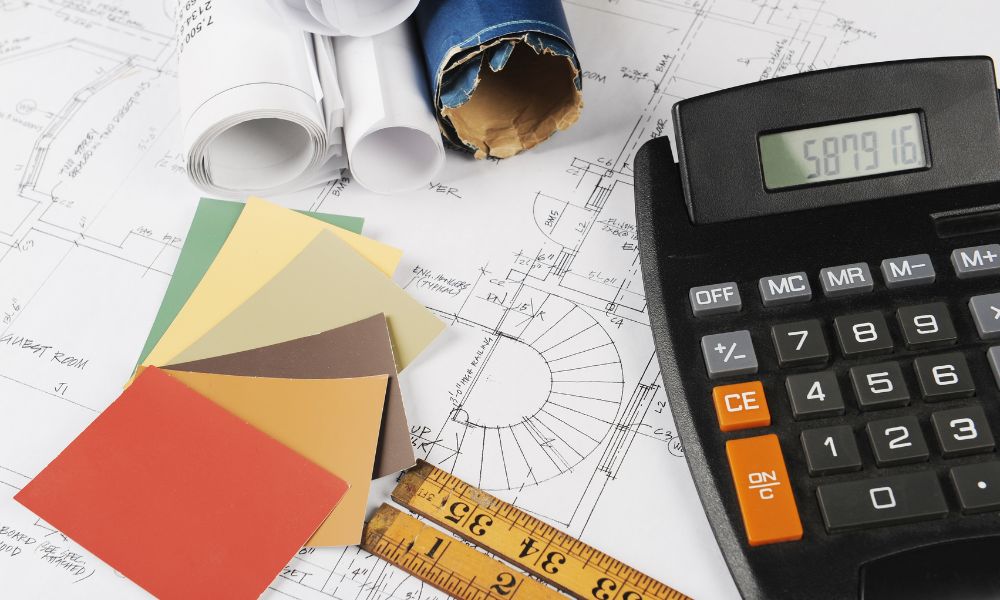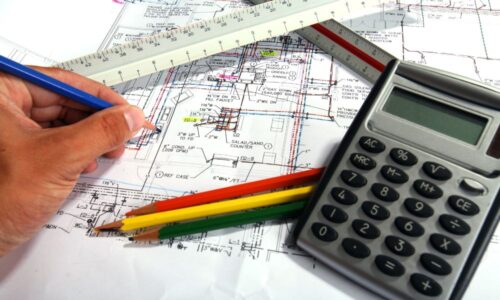Construction estimating is a critical step in the life cycle of any project, laying the groundwork for what will come. Whether you’re building a small residential property or a massive commercial development, the accuracy of your construction estimate can make or break the entire venture.
Estimating goes beyond the simple calculation of costs—it involves an intricate balancing act of forecasting labor, materials, equipment, and time. A well-prepared estimate helps project managers and clients align expectations, manage risks, and ensure the success of the project from start to finish.
This guide will explore the fundamentals of construction estimating, its importance in the construction process, the different types of estimates, and the technology driving modern estimating practices.
What is Construction Estimating?
At its core, construction estimating is the process of predicting the costs associated with a construction project. It includes direct costs such as materials and labor, and indirect costs like permits, overhead, and contingency allowances. By compiling all these elements, the estimator can provide a realistic approximation of how much the project will cost, both for the contractor and the client.
The estimator’s role is to evaluate blueprints, analyze specifications, research material costs, and calculate labor hours. They must also factor in any potential disruptions like weather, regulatory issues, or unforeseen site conditions that could lead to delays or cost increases.
The Importance of Construction Estimating
Construction estimating isn’t just about developing a price; it’s about creating a roadmap for the entire project. Accurate estimates are crucial for multiple reasons:
Budget Planning
The most obvious benefit of an accurate estimate is its ability to help clients and contractors plan budgets effectively. Without a clear financial outline, projects are prone to cost overruns, which can derail timelines and strain relationships between clients and contractors. By creating a detailed estimate, all parties involved know the scope of the financial commitment and can make informed decisions before proceeding.
Scheduling and Resource Allocation
Accurate estimates help with project scheduling and resource management. Knowing how much material will be needed, how long tasks will take, and how many workers are required enables efficient allocation of resources. Missteps in estimating these variables can result in delays, material shortages, or excesses that waste time and money.
Risk Management
Inaccurate estimates increase the risk of financial strain and project failure. Proper estimation includes risk assessment, accounting for factors such as material price fluctuations, supply chain issues, or labor shortages. Building a contingency into the estimate ensures that when challenges arise, they can be managed without devastating the project’s financial health.

Types of Construction Estimates
Different stages of a construction project require various types of estimates. Estimators develop these based on the level of information available and the purpose of the estimate at each stage.
Preliminary Estimates
Also known as conceptual or rough estimates, preliminary estimates are developed during the early stages of a project. At this point, design details may be limited, but the estimator can still provide an approximate cost based on past projects of similar scope and scale. Preliminary estimates help clients decide whether the project is feasible and whether they should move forward with more detailed design and planning.
Detailed Estimates
As the project progresses and more information becomes available, detailed estimates are created. These include a complete breakdown of costs, covering everything from labor and materials to equipment and overhead. A detailed estimate is often used for bidding and contract purposes, and its accuracy is critical for ensuring that all costs are considered.
Quantity Takeoff
A quantity takeoff is a specialized form of detailed estimating where the estimator calculates the exact quantities of materials needed for the project. This is often one of the most time-consuming aspects of estimating, as it requires thorough analysis of the blueprints and specifications. Quantity takeoffs ensure that the right amount of materials is ordered, minimizing waste and ensuring that the project runs smoothly.
Bid Estimates
When contractors bid on a project, they use bid estimates to submit a price proposal to the client. These estimates are typically prepared with great detail, as contractors must account for every element of the project to submit a competitive yet profitable bid. Bid estimates can sometimes involve negotiations between the contractor and the client, with adjustments made to the scope of work to align with budget constraints.
The Role of Estimators in the Construction Process
Estimators play a crucial role in the construction process, acting as both financial planners and project strategists. They work closely with project managers, architects, engineers, and suppliers to ensure that every aspect of the project is financially accounted for. The estimator’s job involves a mix of technical skills, industry knowledge, and a deep understanding of the factors that can impact costs.
Key Skills for Estimators
Analytical Thinking: Estimators must be able to interpret complex blueprints, specifications, and technical documents to create accurate cost projections.
Industry Knowledge: A strong understanding of materials, labor, and equipment is essential for creating reliable estimates. Estimators need to stay current on market trends, supplier costs, and technological advancements.
Attention to Detail: Small errors in the estimation process can have significant consequences, so estimators must pay close attention to detail when calculating costs and assessing risks.
Communication Skills: Estimators must be able to explain their findings clearly to clients, project managers, and other stakeholders, ensuring that everyone is on the same page regarding the project’s costs.

Factors That Impact Construction Estimates
Many variables can affect the accuracy of a construction estimate. Understanding these factors is essential for developing realistic cost projections.
Material Costs
Material costs can fluctuate due to market conditions, changes in supply and demand, or the availability of resources. Estimators must account for these fluctuations when preparing cost projections, often building contingencies to accommodate price volatility.
Labor Costs
Labor costs vary depending on the project’s location, the availability of skilled workers, and the complexity of the job. Estimators must consider wage rates, overtime, and productivity rates when calculating labor costs.
Project Location
The location of the project can significantly impact costs. Urban projects may face higher labor and material costs, while rural projects might require additional transportation expenses for materials and equipment. Additionally, local regulations, taxes, and permitting fees can vary from one location to another, influencing the overall cost.
Project Complexity
The complexity of the project itself can drive up costs. Complex designs, specialized materials, or unique site conditions can require additional resources, labor, and time, all of which must be accounted for in the estimate.
How Technology is Revolutionizing Construction Estimating
The construction industry has experienced significant advancements in estimating technology, making the process faster, more accurate, and more efficient. These technologies help estimators create detailed, data-driven cost projections that reduce risk and improve project outcomes.
Estimating Software
Modern estimating software allows estimators to streamline the process, automate calculations, and reduce the risk of human error. These programs offer templates, databases of material costs, and other resources to help estimators develop more precise and detailed estimates in less time.
Building Information Modeling (BIM)
BIM technology enables contractors and estimators to create 3D models of the project, allowing them to visualize the construction process in detail. BIM helps with quantity takeoffs, scheduling, and resource management, improving the accuracy of estimates.
Cloud-Based Tools
Cloud-based estimating tools enable real-time collaboration between team members, ensuring that everyone has access to the most up-to-date information. These tools improve communication, streamline workflows, and reduce the likelihood of costly miscommunications.
The Future of Construction Estimating
As technology continues to evolve, so too will the methods used for construction estimating. Artificial intelligence and machine learning will likely play an increasingly important role in helping estimators predict costs more accurately by analyzing vast amounts of data and identifying patterns. The integration of these technologies will allow for faster, more precise estimates that reduce the risk of cost overruns and improve overall project management.
Conclusion
In the construction industry, accurate estimating is more than just a financial exercise—it’s a critical tool for managing risk, planning resources, and ensuring the success of a project.
By leveraging modern technology, staying informed about market trends, and maintaining a meticulous approach to the estimating process, contractors and project managers can lay the groundwork for a successful build.
Estimators are key players in this process, ensuring that every project starts with a solid financial foundation.
Ready to streamline your construction project with precise cost estimates?
At Measure Manage, we provide detailed and reliable construction cost estimating services that ensure your project stays on budget. Whether you’re working on a small residential build or a large commercial project, our team has the expertise you need.
Contact us today for a personalized estimate!
📞 Call: 08 9747 7034
📧 Email: info@measuremanage.com.au
Don’t leave your project costs to chance—let Measure Manage take care of it!




